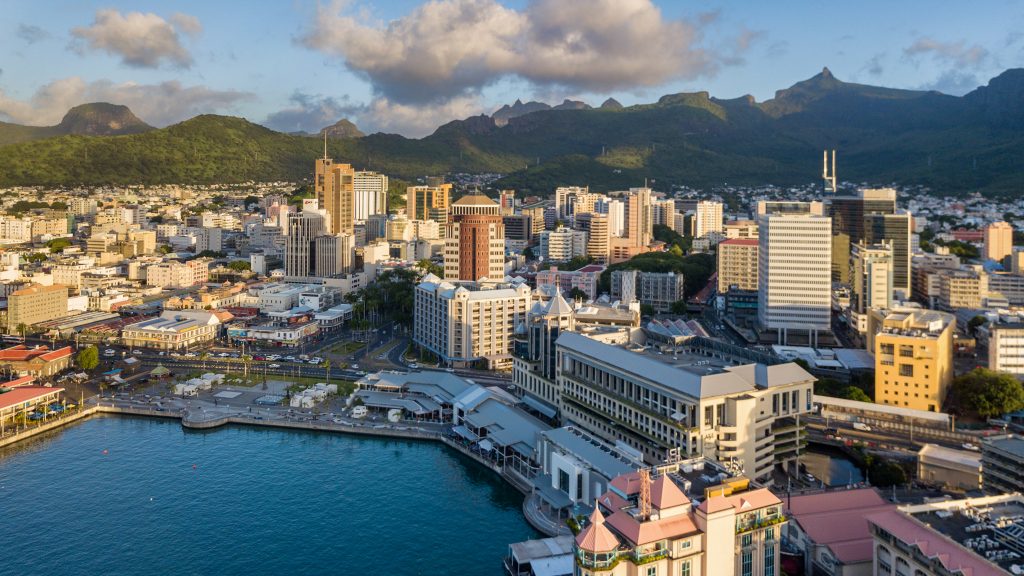What is ALN Kenya | Anjarwalla & Khanna LLP?
ALN Kenya | Anjarwalla & Khanna LLP (ALN Kenya) is the largest corporate law firm in Eastern Africa, with over 100 lawyers, and is generally considered the leading full-service corporate law firm in Kenya. ALN Kenya is the founding member of the Africa Legal Network (ALN), an alliance of leading corporate law firms in fifteen key African jurisdictions and the UAE. At ALN Kenya, we believe that there is a responsibility to give back to the community, as one of our key pillars of focus is the environment.
What are Single-Use Plastics?
Single-Use Plastics (SUPs), often referred to as disposable plastics, are commonly used for packaging and include items intended to be used only once before they are thrown away, such as grocery bags, food containers and wrapping, bottles, straws, cigarette butts, cups, and cutlery. As the quality and properties of most SUPs are poor, and therefore are difficult if not impossible to recycle and/or reuse.
According to the United Nations Conference on Trade and Development (UNCTAD) the volume of mismanaged plastic waste is projected to grow to 10.5 Mt annually by 2025 if no concerted efforts are made to tackle the issue.
What is the Flipflopi Project?
The FlipFlopi Project is a circular economy movement based in East Africa whose vision is a world without single use production. Flipflopi showcases alternate uses of waste plastic and the viability of a circular economy in Africa through education programs, innovation hubs and advocacy and governance programs.
What is ALN Kenya’s involvement in the Flipflopi Project and the fight against single use of plastic?
There is a pressing and urgent need for further collaborative action to be taken by East African policymakers in order to preserve the health of our economy, environment, and persons.
To facilitate this, ALN Kenya has partnered with Flipflopi to champion the legislative agenda at an EAC level through the drafting and introduction of a legislative framework to ban the use and manufacture of specific single-use plastics in the EAC to be presented before the EAC Legislative Assembly for consideration.
This legislative initiative proposes a complete ban on the manufacture, sale, and importation of the following suggested unnecessary single use plastic items by a specific date to be included in the proposed law: microbeads in cosmetics, cutlery, plates, cups, cotton buds, straws, stirrers, wet wipes, carrier bags, balloons, food containers and sweet wrappers (the “Single Use Plastics Bill”).
These are all non-essential items which are particularly harmful to our environment and livelihoods, cannot be recycled and are readily substitutable.
As the EAC economies grow, we are offered a range of opportunities to rethink single-use plastics and recycling.
We’re in a position to develop new production, consumption, and disposal models that are focused around a closed-loop model. This model takes us away from the current consumption and destruction model and can promote community-led closed-loop waste management initiatives to tackle this global issue at a local level while creating new industries and employment opportunities.
Moreover, ALN Kenya has also assisted with the report on, “State of Affairs: Policies, Regulations and Laws that Address the Harmful Effects of Single-Use Plastics in the East African Community (2021)”, which summarises all the environmental laws vis-à-vis SUPs within the EAC to showcase the progress that has been made over the years by each of the EAC member states.
Which countries make up the EAC and what current laws and regulations does it have in place, relating to SUPs?
The EAC is a regional economic community made up of seven (7) member states. The EAC member states include the Democratic Republic of the Congo (the DRC), Burundi, Kenya, Rwanda, South Sudan, Uganda, and Tanzania. The EAC member states have each taken legislative action in relation to certain SUP items (mainly plastic bags) in order to reduce the detrimental effects of plastic litter.
The EAC has existing legislation in relation to environment and natural resources management, pursuant to which EAC member states are required to cooperate and coordinate policies and actions for the protection and conservation of natural resources and the environment against all forms of degradation and pollution arising from developmental activities. On this basis, the EAC member states have come together to pass the Polythene Material Controls Bill at the EAC Legislative Assembly level. Despite the pending signature of the Bill into law, there is potential for increased environmental leadership by the EAC, in particular to address the proliferation of SUPs and to align policies and strategies for plastic waste management across all member states.
What is the uptake of laws and regulations in the EAC relating to the regulation of single use plastics and what are some of its impediments?
While positive legislative steps have been taken across the EAC to address SUPs (the most common being plastic bags), there is both complexity around the application of policy frameworks as well as inconsistent enforcement of the bans across EAC partner states. Some of the impediments to the adherence and enforcement of legislation include unclear policy frameworks; a lack of detailed guidelines on SUPs; a resistance to the implementation of legislation which can itself be attributed to a lack of awareness amongst the public, financial incentives that encourage businesses to shift towards alternatives and collaboration between policy makers and key stakeholders as part of the implementation process; poor regulatory enforcement; cross-border smuggling of banned items; a lack of available, affordable, and accessible alternatives to SUPs and limited reporting on the successes and challenges of such legislation.
How has each country responded to these laws? Are there similarities in their approach? Are there differences?
Each EAC member state has had a different implementation approach on the ban on SUPs. For example, some EAC member states have had additional bans on other plastics, while others have had organisations that have actively lobbied against the ban on plastic bags. In the context of Kenya, the Kenya Association of Manufacturers (KAM) claimed that the ban on plastic bags could lead to the loss of jobs, investments and markets as some manufacturers were forced to close their businesses or move to other countries. Despite this, Kenya now has the one of the strictest bans on plastic bags in the world. This is different from Uganda which has struggled with implementing the plastic bag ban since its first announcement in 2007 but was met by much backlash from manufacturers and local traders, delaying implementation for over a decade. Uganda has struggled with implementing the plastic bag ban and currently has a ban against plastic bags that are less than 30 microns.
Other EAC member states such as Rwanda faced some backlash from the manufacturing sector, manufacturers requested a 3-month extension to the ban, which was denied, but have been more successful in implementing the ban on plastic bags, with plastic bags and certain SUPs banned. Rwanda also proposed an international, legally binding agreement to combat plastic waste in collaboration with Peru. South Sudan, Burundi, the DRC, and Tanzania banned plastic bags. However, despite the efforts by these countries, they have had shortcomings in the implementation and enforcement of their respective legislation.
Overall, there is still a need to synchronise the implementation of environmental policies across the EAC to prevent the transboundary movement of plastics and to fight against overall plastic pollution successfully. Additionally, there needs to be further legislative action with respect to addressing the manufacture, importation, use and sale of not only plastic bags but also unnecessary SUPs that cause the most harm to the environment at a regional level.
What does the Single-Use Plastics Bill plan to address?
The proposed Single-Use Plastics Bill has the overall objective to provide a legal framework for the preservation of a clean and healthy environment in the EAC member states, through the prohibition of manufacturing, use, and importation of certain SUPs across the EAC, including polythene and plastic bags; cutlery (forks, knives, spoons, chopsticks); plates and bowls; plastic straws; beverage stirrers; balloons and sticks to be attached to and to support balloons; food containers made of expanded polystyrene; among others. The complete ban targets those plastics that cause the most harm to the environment.
Additionally, the Single-Use Plastics Bill aims to address several other environmental issues, one of these being preserving a clean environment for sustainable development. This is through promoting the use of sustainable and non-toxic reusable products and reuse systems in place of single-use plastic products, aiming first and foremost to reduce the quantity of waste generated in the EAC. Furthermore, the Single-Use Plastics Bill seeks to reduce pollution by protecting current infrastructure, including drainage systems, biodiversity, and livestock through the increase in beneficial reuse and recycling practices. The end goal in the implementation of the Single-Use Plastics Bill is to create a synchronisation in legislation across an environmentally conscious EAC.
How could the regional ban on SUPs impact the EAC and the key stakeholders?
For governments in EAC member states, implementing a collective ban on SUPs will allow the EAC to be branded as a green and clean standard setter. In doing this, a cleaner environment will promote tourism sectors in EAC member states, improving the state of attractions and other natural resources. New industries dealing with waste management and the reuse and recycling of current plastic pollution will provide jobs, investment, and economic output within the sectors. Currently, some of the EAC member states, namely Tanzania, Kenya, and Rwanda, are in the process of developing Extended Producer Regulations, which assist in the management and correct disposal of waste and plastic products. The Single Use Plastics Bill and further initiatives could educate local communities about plastics which, in turn, would increase both their wellness and the overall health of the EAC population. Finally, implementing the Single Use Plastics Bill would provide an overall benefit to EAC member states, bringing the EAC one step closer to further development.
Stakeholder momentum is also critical to consider in implementing a Single Use Plastics Bill banning plastics. Because of the ban on plastic bags in 2017, there was much backlash from local businesses and manufacturing associations in many of the Partner States. The rationale for this is that the economic output, investment, and job loss outweighs the potential benefit resulting from the ban. Similar to the ban on plastic bags, opposition to the Single Use Plastics Bill is bound to occur as it could impact the livelihoods of manufacturers and small local businesses. However, through the switch to biodegradable and recyclable alternatives, such as using wood to make cotton buds instead of plastic, manufacturers will be able to switch to alternatives and meet demand while maintaining employment and focusing on the well-being of the environment.
Although, there is an indirect cost to the government, involving health systems and waste management, in the long run the country will be better off due to less health problems and a larger contribution to GDP and standards of living.


